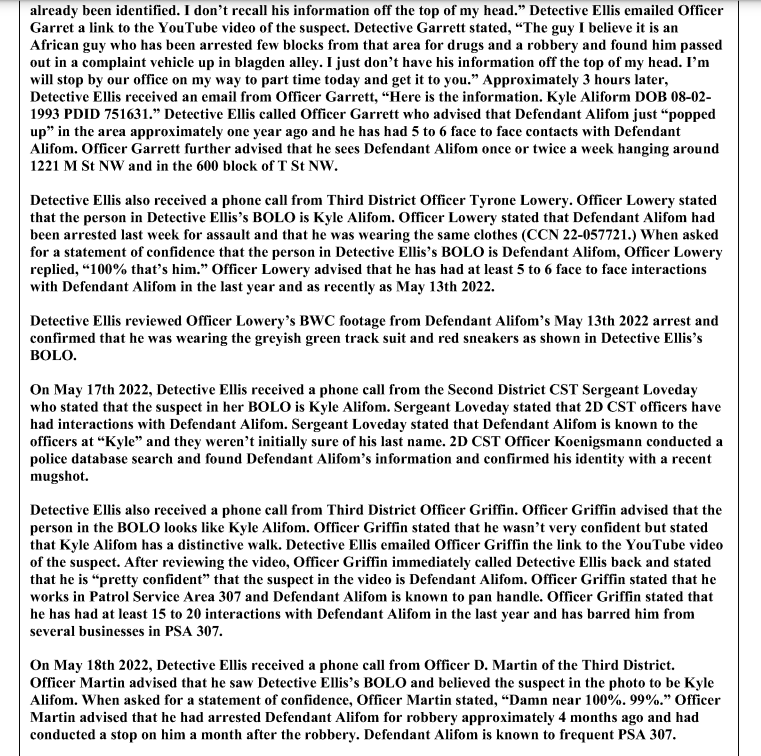At the start of 2023 DC was at record lows for arrests, prosecutions & detention.
Chief Smith got MPD to make more arrests than they had in years.
Public pressure dragged the USAO to prosecute more cases.
This correlated with big drops in crime in the 2nd half of 2023. (1/
Chief Smith got MPD to make more arrests than they had in years.
Public pressure dragged the USAO to prosecute more cases.
This correlated with big drops in crime in the 2nd half of 2023. (1/

Today's post goes through how on almost every enforcement metric DC was at rock bottom by the beginning of 2023; driven by decreases in arrests and massive decreases in USAO prosecutions.
But there was no political penalty for this deterioration for Mayor Bowser or the USAO. (2/
But there was no political penalty for this deterioration for Mayor Bowser or the USAO. (2/

This deterioration in enforcement meant that DC was uniquely vulnerable to any spike in crime in 2023: (3/ 

As we all know, crime DID spike in 2023. One contributing factor was the "Kia Challenge" revealing for many kids (& some adults) just how easy it was to get away with crime in DC.
What started as car thefts escalated into robberies and carjackings. (4/
What started as car thefts escalated into robberies and carjackings. (4/

Chief Smith's appointment seems to have shaken things up at MPD & pushed them to a higher arrest rate equilibrium: (5/ 

"Chief Smith scared the shit out of the white shirts" is how one MPD officer described it.
“So now, instead of white shirts telling people to only answer the radio, they are saying if you see something, do something.”
It looks like this helped tamp down the crime spike. (6/
“So now, instead of white shirts telling people to only answer the radio, they are saying if you see something, do something.”
It looks like this helped tamp down the crime spike. (6/

The arrest data AND the qualitative reporting we're getting out of MPD both point towards Chief Smith engaging in a serious push to break some bad habits within MPD and make the force more proactive: (7/ 

Notably the surge in arrests-per-office in August (which was a post-COVID record high) corresponds with a dramatic showdown between Chief Smith & the MPD command staff: (8/ 

While MPD's clearance rates plunged in 2023 as they weren't able to "keep up" with the surge in crime; Chief Smith changed the leadership of the Investigative Services Bureau & clearance rates appeared to be improving in the last months of 2023. (9/ 

The USAO responded to harsh criticism in 2023 by raising prosecution rates. However they seem to be incredibly selective in when and where they increased prosecution.
There's a huge anomaly in September where prosecutions spiked; conveniently before reported charging data. (10/
There's a huge anomaly in September where prosecutions spiked; conveniently before reported charging data. (10/

The glass-half-full view of USAO prosecutions is that they did bounce back from their rock bottom prosecution rates/volumes in FY 2022.
In January-May they only charged 486 new cases per month while in September-December the USAO charged 714 new cases; a 47% increase. (11/
In January-May they only charged 486 new cases per month while in September-December the USAO charged 714 new cases; a 47% increase. (11/

We don't have very much juvenile prosecution data but the rising juvenile detainee census suggests that the increase in juvenile arrests is translating into more juvenile prosecutions: (12/ 

We saw that a combination of new leadership (MPD) & sustained pressure (USAO) brought about real increases in arrests & prosecutions that correlate strongly with DC bringing down crime rates in the 2nd half of 2023.
This story of increased enforcement deserves more attention.
This story of increased enforcement deserves more attention.

• • •
Missing some Tweet in this thread? You can try to
force a refresh















